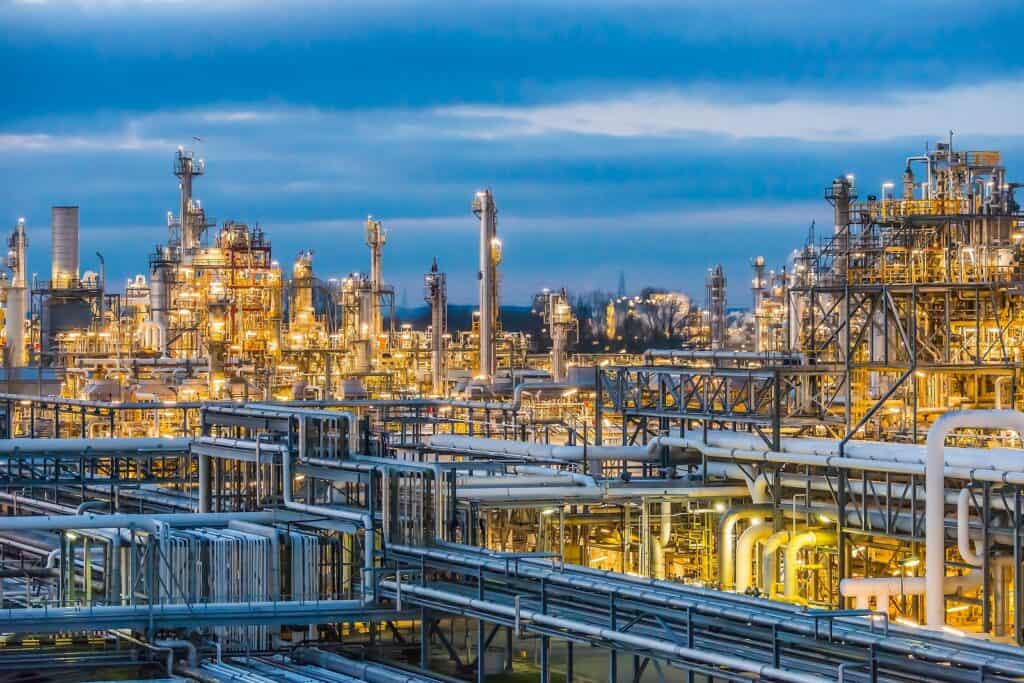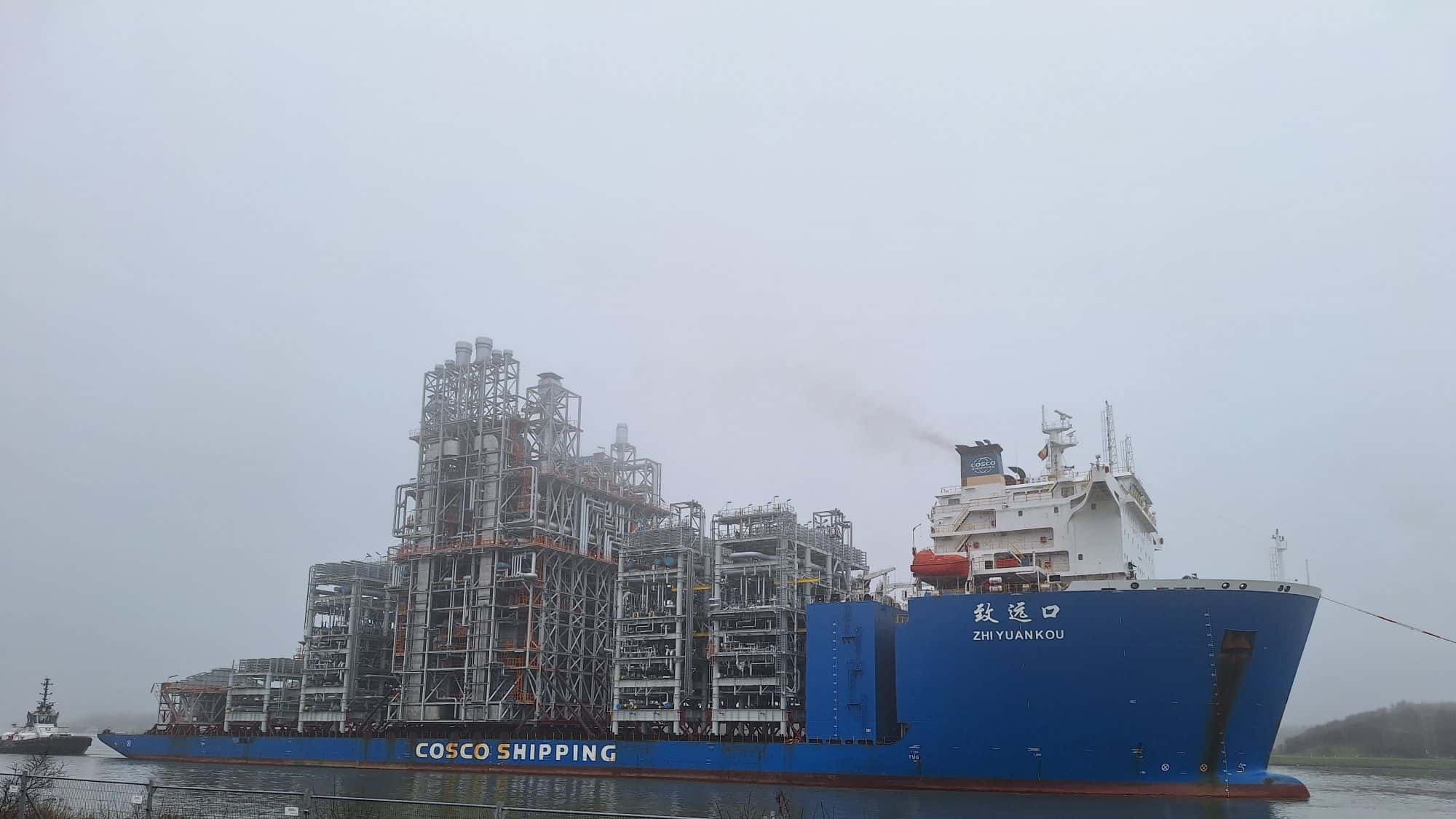Sometime in the next year or so, a ship will set sail from Germany with a somewhat unusual cargo. Onboard will be a polycarbonate plant once owned by Trinseo.
The two polymer trains currently sitting in Dow’s Stade chemical park in Germany will be carefully dismantled, packed up, and taken to their new home in India, where its new owner, Deepak, will rebuild it.
It’s hard to think of a more poignant image depicting the plight of Europe’s chemical industry.
“It’s not unheard of to move a plant, but it’s not common either,” Bee van Kessel, Senior Vice President, Corporate Finance, said in an interview with chemicalESG.
Trinseo is not the only one restructuring its European footprint. This “extremely complicated and complex project” is a sign of the times.

Vast swathes of the region’s commodity-chemical asset base are effectively up for grabs. LyondellBasell and Dow, which spun off Trinseo in 2010, have publicly announced strategic reviews.
But there are lots of others, including some iconic names, quietly undertaking similar projects. What raises an eyebrow these days is hearing about a company that ISN’T working on such a plan.
The scope of Dow’s review is primarily focused on its polyurethane base in Europe, for now at least. The contrast with the US is a stark one. There, the US company is adding 3.5 million metric tons of zero-scope ethylene and derivatives, despite there being a global oversupply at the moment. When an analyst today asked CEO Jim Fitterling whether European production might close to offset the higher output, he answered that’s a “valid point” to make.
There’s been a lot of discussion in the EU about its competitive position, yet little action, he added. Ultimately, he sees action at the government level in countries with the most at stake — the Netherlands and Germany — bringing about change, rather than the EU.
“You’re going to see some contraction there,” Fitterling said on a call. Dow announced today that it is culling about 1,500 jobs globally to help save $1 billion in costs, and Europe and Asia, as higher cost centers, will be impacted.
Companies like “Europe The Market Place,” they just don’t want to manufacture commodity chemicals due to the cost of generating steam. The better sites break even; some are loss-making. Analysts think the industry will flatline this year, and only a mass cull of plants will bring about a proper recovery.
Whether a buyer will come forward and acquire the plants that come up for sale is another question. Europe’s kit is, on average, 40 years old. That compares with an estimated 20 years in the US and something like 5 years in China. It could well be that the purchase price of a LyondellBasell cracker is quite reasonable, but the purchaser will have to factor in a lot of investment to meet increasing environmental standards.
Perhaps other plants will emigrate.
Van Kessel said the Stade deal was a first for Trinseo. Deepak has bought plants and shipped them back to India before. It plans to have the Stade trains up and running in 2028. The Gujarat-based maker of intermediates is paying $52.5 million for a technology license and manufacturing equipment. Interestingly, the other parties around the asset were thinking along the same lines.
“We did get a number of inbounds when we announced we were stopping virgin polycarbonate production,” the Trinseo executive said. “Those inbounds were related to moving the assets as well. So Deepak wasn’t the only one interested in that solution.”
Although Trinseo has unique technology, the Stade facility lacked the scale of, say, a Covestro, which is being acquired by the deep-pocketed Abu Dhabi National Oil Co. Alongside high costs, the plant suffered from cheap imports from Asia, including South Korea. It already had to shut one of the trains last year amid lackluster demand in building and construction markets as well as sluggish orders from the automotive sector. But even with one train down, Trinseo still couldn’t fill the remaining one.
“We really tried to avoid the closure of the site. That’s why we initially idled one train, really trying to see if it would make it work,” she said.
Still, van Kessel feels some excitement that Trinseo’s CALIBRE@ brand will be the first locally produced high-quality polycarbonate in India as, right now, everything is imported.
“India seems to be able to refurbish everything,” she said. “Deepak is allowed to take everything in the perimeter. They still need to have a look to see what’s worthwhile for them, and they will have third parties looking at that. We need to see how much of the compounding they take, but I’m expecting them to take the two polymer trains completely.”
The chemical industry has an innate ability to serve up interesting stories on just about anything. So, of course, there is one about moving a plant. The condensed version is that a few years ago, a company that shall remain nameless formed a joint venture with a Chinese firm. The partnership involved dismantling a plant and shipping it to China. Unhappy about the emigrating facility and losing their jobs, some workers turned to sabotage, adding a bit of sulfuric acid to the cargo, knowing that corrosion would take place on the long journey.
That was then. Things are going smoothly at Stade.
“We’ve got a lot of feet on the ground at the moment, a lot more people than you would have with a standard decommissioning-and-demolition kind of project,” van Kessel said. “It’s always painful when you close down sites, which we have been doing now a bit in Europe because of the uncompetitive cost position that we have in Europe and Stade specifically for polycarbonate.”
There’s a rather ironic end to Trinseo’s polycarbonate plant. Right now, the remaining train has been running at maximum capacity.
“Now we have announced the closure, we have a lot of last-time buying, and orders from customers who appreciate some of our niche grades. They are not all niche grades otherwise we probably wouldn’t have had to close down,” van Kessel said.


